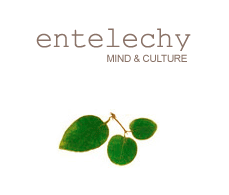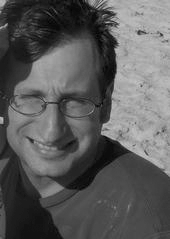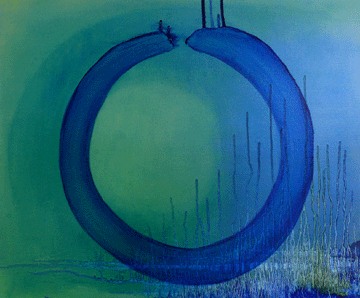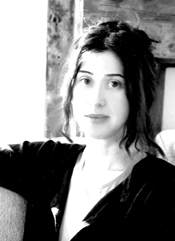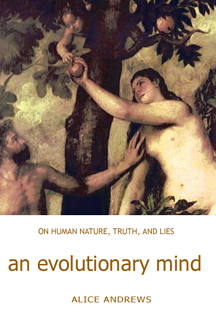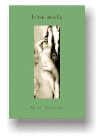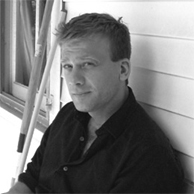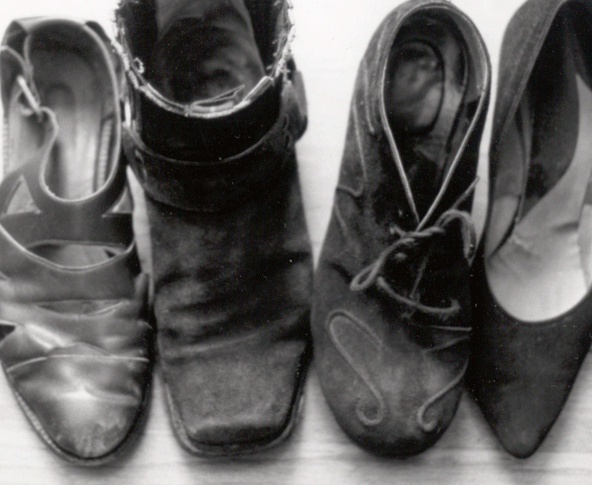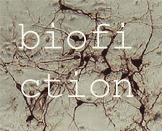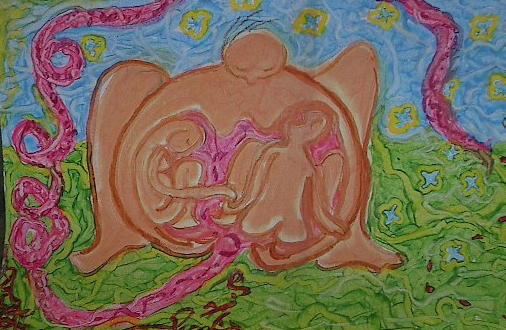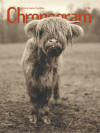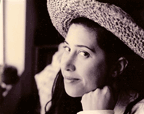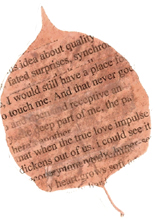editors' musings contributors links about back issues donate
tim horvath | poetry editor
Tim Horvath received his MA in English Education from Teachers College, Columbia University, and will soon finish his MFA in Creative Writing at the University of New Hampshire. He taught high school English for nine years, and currently teaches Creative Nonfiction at UNH. Tim's story "The Understory" won the 2006 Raymond Carver Prize sponsored by Carve Magazine, and has been nominated for a Pushcart Prize. His interest in cognitive neuroscience and evolutionary psychology has led him to give talks at various conferences, including ones with Jason Ronstadt on the dreaming brain and literature. His novel-
Evolutionary Tao?
Lise Carlson. Enso. 2006. Oil on canvas, 20x24.
When Alice coined the term “evolutionary tao” for this latest issue, my gut reaction was, Hmmm, catchy, but what does it really mean? I’m still not sure I know what it means, but as soon as I mouth the words, I feel them start to spar with one another, vying for something. What? A fundamental view of nature? Indeed, nature in an evolutionary perspective offers up a rather different template for joint-cutting than does Taoist nature. Randomness and natural selection are decidedly different forces from yin and yang, the dynamic tensions traced by Taoism. What they share is a perpetual flux, but the differences appear to be more salient than the common ground.
Still, maybe in spite of their foreignness to one another, maybe because of it, the juxtaposition of these words and ideas is worth pondering. Both terms are adept at mingling with other words, attaching themselves readily in the agora of ideas, altering whatever they come into contact with. Thus we get Evolutionary Politics, The Tao of Physics, Evolutionary Game Theory, The Tao of Sex, The Evolution of
read more
Goodbye in Many Languages
